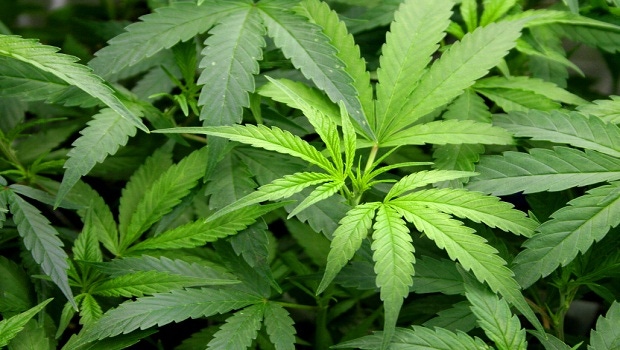As the legal cannabis industry enters a rapid growth phase, it seeks guidance from the natural products industry on good manufacturing practices (GMPs), standard operating procedures (SOPs) and ingredient standardization.

A budding industry with high demand, but facing legal, manufacturing and consistency concerns, cannabis suppliers see a kindred situation with the natural products industry.
While the botanical has been popular in the United States for centuries, January 2014 saw a bump in cannabis discussion with New York Governor Andrew Cuomo announcing that the state will be the 22nd state to offer medical marijuana to select patients. Plus, Colorado's Amendment 64 was implemented allowing adults (21 years and older) to grow, possess and use marijuana. At the end of February, business was clearly booming in Colorado. Gov. John W. Hickenlooper revamped his budget based on taxes the state has already collected from marijuana sales. He estimated the state’s marijuana industry could produce close to USD $134 million in taxes and fees for the State in the next fiscal year. The estimate proposed to voters when the initiative was on the ballot in 2013 was $70 million.
And The New York Times reported in Washington, where retail sales of marijuana will begin in June, budget forecasters estimated marijuana could bring the state nearly $190 million in taxes for the four years beginning in mid 2015.
Demand is high not only for its well-known psychotropic effects, but also for its health benefits, which have been demonstrated in hundreds of studies. A 2012 review from the Hannover Medical School in Germany reported cannabis has antispastic, analgesic, antinausea, neuroprotective and anti-inflammatory actions, and is effective against certain psychiatric diseases (Dtsch Arztebl Int. 2012 July; 109(29-30): 495–501). Its legal, safe use could bring relief to those who suffer from a number of ailments.
In fact, synthetic cannabinoids have been available with a prescription in the United States since the 1980s. Dronabinol, available in the United States and Canada. Dronabinol a pure isomer of tetrahydrocannabinol (THC), the principal psychoactive constituent of the cannabis is sold as Marinol (from Solvay Pharmaceuticals and also distributed by PAR Pharmaceutical Companies) to treat anorexia in AIDS patients and to treat refractory nausea and vomiting in chemotherapy patients.
Establishing GMPs
During this critical beginning stage of the legal marijuana industry, safety is crucial. CBS News reported Barbara Brohl, executive director of the Colorado department of revenue, as saying marijuana testing rules are still being finalized; she said she expected the state to start requiring mandatory testing of products in summer 2014.
Without legal, binding rules for safe manufacturing, it's up to responsible industry to come up with its own quality testing standards. It sounds a lot like the natural products industry before 2007 when FDA finalized its GMPs (good manufacturing practices) for dietary supplements.
It reasons that Americans for Safe Access (ASA), an organization working to ensure safe and legal access to cannabis for therapeutic uses and research, turned to the supplement industry for guidance. Steph Sherer, ASA's executive director, said the organization started working with the American Herbal Products Association (AHPA) in 2010 to develop GMPs for the cannabis industry.
AHPA, through its Cannabis Committee, drafted regulatory recommendations and manufacturing guides for several states that legalized medical and recreational marijuana. The recommendations detail best practices for distribution, including product acquisition, facility maintenance, security and personnel training.
"Since we've been working with AHPA, every state that has moved into implementing new state laws has adopted their recommendations for regulators," Sherer said.
Michael McGuffin, president of AHPA, said the organization got involved because, "The industry said we needed to focus attention on this. These companies believe they are engaged in lawful business within the states, but they realized they didn't have consistency in their regulatory approach. It was a notable gap identified to us, and we have skills in that area."
The American Herbal Pharmacopoeia (AHP) also played a large role by creating a cannabis monograph to establish standards for the botanical's identity, purity, analysis and quality. Finalized in December 2013, the monograph also provides information of cannabis' cultivation, storage and preparation.
"The AHP cannabis monograph establishes a standard of quality," McGuffin said. "It doesn’t set a regulatory requirement, but there will be a call for suppliers to meet the monograph, even though there's no legal requirement."
Sherer said the monograph allows the cannabis industry to create testing standards in the legal cannabis states. AHP's monograph is mentioned by name in the Nevada, Washington and Colorado regulations, Sherer said.
With that guidance, ASA launched a certification similar to supplement third-party GMP certifications. In December 2013 ASA released the Patient Focused Certification (PFC) program based on a combination of state regulations, AHPA's GMPs standards and the AHP monograph. Certification includes a paperwork audit to ensure companies have the licensing required to operate legally; a training audit to ensure employees have necessary training; and a physical audit of manufacturers, cultivators, dispensaries and laboratories. ASA will conduct at least one surprise physical audit each year.
ASA certified the first two dispensaries in late February to Berkeley Patients Group and SPARC of San Francisco. Sherer said ASA is currently working with 20 more companies that are going through the training and audits to become certified.
McGuffin pointed out some cannabis companies have figured out their own GMPs and other manufacturing processes that adhere to safe, quality controls. "There are some well-established companies making products that are likely to be in compliance with whatever regulations come into being," he said.
But still, formal regulations would allow the industry to thrive, he said. "If this is a meaningful, emerging market and marketable product, then the faster these companies look like any other business in terms of consistent regulation and compliance with regulation, the more likely they'll succeed and survive."
Natural Products Connection
It's clear the cannabis industry can learn from the road the natural products industry paved; but, with the negative press supplements often receive, why would supplement industry members embrace yet another controversial ingredient? After all, even if marijuana was legal, it still wouldn't be classified in the same "dietary ingredient" category of supplements. Unlike vitamin C or ginseng, cannabis products would likely be located behind the counter and not available to minors.
However, Sherer noted, "This is a quickly growing industry with an overlap in these two industries. Many of the companies within the dietary supplement industry from capsule manufacturers to lab equipment suppliers and labs could play a part in the huge new industry. We’re going to bring a big boost to some areas of the industry."
McGuffin said he has received calls from well-established natural products companies that are curious about the emerging market place. He said some are concerned with the controversy of cannabis, but others are business-based calls with company executives wondering if their company has a place in this emerging market.
The development of high cannabidiol (CBD) cannabis products—those that emphasize the constitutes that reduce physical pain while avoiding constitutes that result in psychotropic activity—could be promising to the supplement industry, according to McGuffin. CBD, a major nonpsychotropic constituent of cannabis, has multiple pharmacological actions, including anti-anxiety, antipsychotic, antinausea and anti-inflammatory properties (Curr Drug Saf. 2011 Sep 1;6(4):237-49).
The supplement industry and the cannabis industry also have a shared history. Cannabis is, after all, a natural product. It was used for centuries as a botanical medicine. Sherer said it was treated like any other botanical medicine by the American Medical Association at the turn of the 20th century. "Cannabis was cast out with other botanicals in the early 1900s. We believe cannabis is a botanical medicine, and we are fighting so it can find its place alongside Echinacea and other botanicals."
Challenges to Growth
Unfortunately for the cannabis industry, the manufacturing methods are not the only thing that hinders its growth. Despite state law approval, growing, holding, distributing and using marijuana is still illegal in the United States under federal law.
"The courts have said state and federal laws can live in conflict," Sherer said. "States can continue to legalize marijuana use, but they know they are breaking federal law. If the feds at any time wanted to shut this down, they could. The main reason they haven't is that they don't have the resources."
Because it's illegal on the federal front, interstate commerce is also a violation of the law. Therefore, cannabis products currently can only be consumed in the same state it was grown.
"Marijuana that's consumed in a particular state must be grown in that state in order to avoid interstate commerce," McGuffin said "It's not logical. We don't have laws that say if you want orange juice in Rhode Island, than those oranges must grow in Rhode Island, and that's good because there wouldn't be orange juice in Rhode Island."
This also raises the question of production. Do encapsulating companies, bakeries or other companies in the cannabis product supply chain also need to be within the same state the finished product is sold? It's clear legal questions still need to be addressed.
Beyond the federal restrictions, questions still apply to the regulation of cannabis, even in states where it's legal. Each law that legalized medical or recreational use of cannabis is different, and Sherer said, "They are not all created equally. It's an interesting experiment in democracy."
McGuffin noted AHPA's Cannabis Committee would like a standardized legal approach across the different states. This would be best for the development of business, he said.
Even if all states and the federal legalized marijuana, classification of cannabis products would need to be defined. "If we classify all marijuana products as drugs under the federal Food, Drug and Cosmetic Act (FD&C), would it be on a brand-by-brand basis, and a company would have to spend $10 million to $100 million to bring each product to the market?" McGuffin asked. " That seems like an unworkable product category to create a workable business model."
With the help of the natural products industry, cannabis products could gain a stronger foothold and more quickly than they could without its help. And, once the legal matters are settled, natural product companies could increase revenue by tapping into this growing market.
About the Author(s)
You May Also Like






.png?width=800&auto=webp&quality=80&disable=upscale)